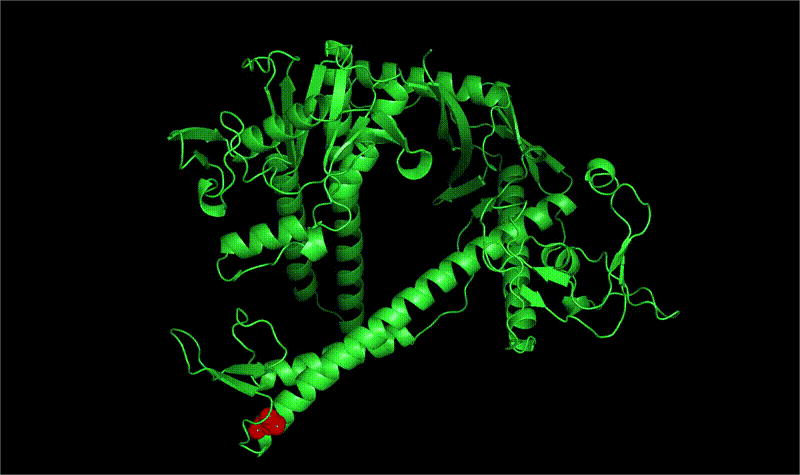by Justin Jackson , Medical Xpress
Increasing concentrations of 4'-FlU block Lassa infection of HeLa cells. Green, infected cells; blue, nuclei; DMSO, vehicle-control. Credit: Viral Special Pathogens Branch, CDC
Centers for Disease Control and Prevention-led research demonstrates that an oral antiviral drug, 4′-fluorouridine (4′-FlU), effectively inhibits lethal arenavirus infections in animal models.
Viruses causing hemorrhagic fevers that damage blood vessels and cause severe bleeding, such as Lassa virus (LASV) and Junín virus (JUNV), pose significant threats to public health due to high morbidity and mortality rates. Currently, approved therapies for treating these pathogens are lacking, with an urgent need for broad-spectrum antiviral treatments.
Antiviral therapies are critical for outbreak and pandemic response against emerging and reemerging viruses. Arenaviruses that cause hemorrhagic fevers have had several recent international outbreaks with no approved therapeutic countermeasures.
In a study, "Delayed low-dose oral administration of 4′-fluorouridine inhibits pathogenic arenaviruses in animal models of lethal disease," published in Science Translational Medicine, researchers tested the antiviral activity of 4′-FlU against multiple hemorrhagic fever viruses in cell cultures, including Lassa virus and Junín virus.
In preclinical in vivo evaluations using guinea pig models of lethal LASV and JUNV infections, oral administration of 4′-FlU was initiated at various post-infection time points, including delayed treatment scenarios. 4′-FlU demonstrated potent antiviral activity in cell cultures against LASV, JUNV, and other hemorrhagic fever viruses.
In guinea pig models, oral administration of 4′-FlU showed high efficacy, protecting animals from lethal disease even when treatment was delayed, or the dosage was reduced to as low as 0.5 milligrams per kilogram. Treated animals exhibited rapid resolution of clinical signs and had significantly lower viral loads compared to control groups.
An effective treatment for arenavirus infections could benefit hundreds of thousands annually. Lassa virus alone causes between 100,000 and 300,000 infections and approximately 5,000 deaths each year in West Africa, according to crude estimates by the Africa CDC.
The availability of a broadly effective antiviral like 4′-fluorouridine could significantly reduce these figures by providing a viable therapeutic option, especially in regions where limited access to early diagnostic and supportive care exacerbates the burden of disease.
More information: Stephen R. Welch et al, Delayed low-dose oral administration of 4′-fluorouridine inhibits pathogenic arenaviruses in animal models of lethal disease, Science Translational Medicine (2024). DOI: 10.1126/scitranslmed.ado7034
Journal information: Science Translational Medicine
© 2024 Science X Network








Post comments